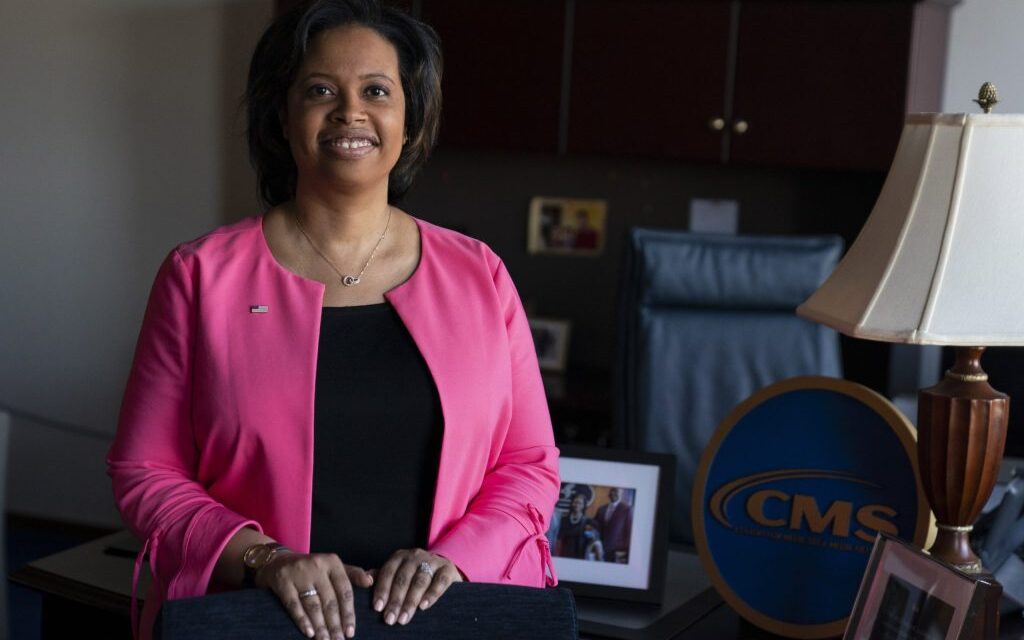By Deborah Bailey,
AFRO Contributing Editor,
dbailey@afro.com
The U.S. Department of Health and Human Services (HHS) is on a mission to spread the news about Medicaid postpartum coverage expansion, a topic of discussion at the agency’s second annual Black Health Forum.
The Feb. 27 meeting was a check-in for health care providers, advocates, policy makers and citizens with HHS leadership on major health issues facing Black Americans. The annual gathering also serves as a platform to call out the major problems in Black health outcomes and delivery that persist.
Chiquita Brooks-LaSure, administrator for the Centers for Medicare and Medicaid Services (CMS), hailed the fact that 44 states, the District of Columbia and U.S. Virgin Islands have adopted the new expansion of postpartum coverage. The Medicaid extension extends benefits for pregnant women for 12 months after pregnancy, a sizable increase from the previous coverage of only 60 days after pregnancy. LaSure said the new expansion covers post pregnancy issues like postpartum depression, what she called “the fourth trimester.”
In the U.S., Black women are more than three times more likely to die from a pregnancy related issue than white women, according to the Centers for Disease Control (CDC). Black infants one year or less die at more than twice the rate of White infants in the U.S.
“Under the Biden-Harris administration, we’ve built a firm foundation to support the health and wellbeing of women and families. That foundation now forms the bedrock for a growing majority of states that are prioritizing maternal health improvements, and advancing care for our communities as a result,” Brooks-Lasure stated. “Medicaid supports 40 percent of all births in this country. It also provides an opportunity to implement changes that can ripple across all the states and localities – all across the nation.”
Dora Hughes, the acting chief medical officer and acting director of CMS’ Center for Clinical Standards and Quality, Centers for Medicare and Medicaid, added the Medicaid postpartum expansion comes as a result of focusing on equity as a primary healthcare goal.
Hughes said Medicaid has expanded the types of pre and post-birth health care models that pregnant persons are able to access as they listened to the real life experiences of pregnant persons.
“We all understand that we have an all-hands-on-deck situation,” Hughes added, referencing the current grim birth outcomes for Black women and all women in the United States.
Dr. Rachel Villanueva, a board-certified OB-GYN specialist and past-president of the National Medical Association, said that her daily medical practice has given her years of first- hand experience with Black women who come to her in search of a Black physician to guide their pregnancy experience.
“I have seen a dramatic increase of women of color coming to get care. Women who thanked me for listening to them, believing them,” Villanueva said.
The women who seek out Villanueva say they have felt ignored by other providers who minimized their symptoms and experiences or didn’t simply believe them, Villanueva said.
Alexia Doumbouya, a certified doula and president of CocoLife, a community-support organization for pregnant moms and new mothers based in Philadelphia, said her own post-birth mental health challenges helped her understand the helplessness many Black pregnant women and new mothers experience.
“I didn’t have the language of postpartum depression,” said Doumbouya as she explained the experience that impacts between 29 and 44 percent of Black women, according to the CDC. “I just knew that I felt like a horrible mother. I knew I was struggling, I knew I could not figure out why I could not connect with this person that I just carried for nine months.”
“I felt alone. I was terrified that someone was going to take my child. I knew I needed help, but where do you go,” said Doumbouya, who started CocoLife in 2019.
At the end of the day, participants agreed dangerous disparities continue to exist for pregnant and postpartum Black women. The federal agency is still in early stages of centering equity-based approaches. But H.H.S. is awake, listening and responding, said Rev. Que English, the director of HHS Center for Faith-Based and Neighborhood Partnerships.
“We are not ostriches in the sand,” said English, acknowledging her colleagues at H.H.S. are fully aware of the grim statistics Black women currently face during pregnancy.
But, looking toward the work being done to combat maternal health disparities, she declared, “Our collective goal is to see the United States become one of the safest places to give birth.”
The post Medicaid postpartum coverage extended to 12 months in most U.S. states appeared first on AFRO American Newspapers.











